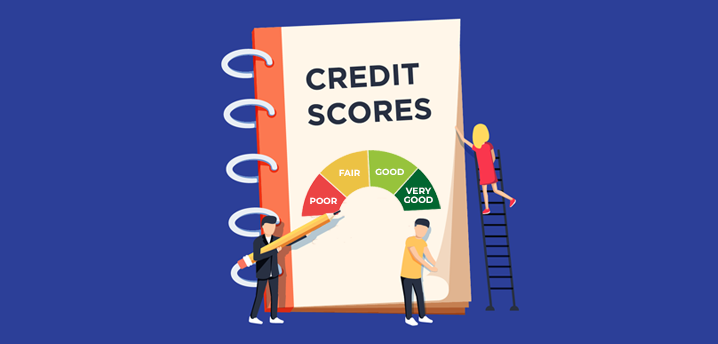Understanding Your Credit Score: Unlocking Financial Success In 2023

Understanding Your Credit Score: Unlocking Financial Success
Introduction
Understanding Your Credit Score on a journey to financial well-being requires a crucial understanding of your credit score. In this comprehensive guide, we’ll delve into the intricacies of credit scores, shedding light on why they matter, how they impact your financial life, and actionable steps to enhance them.
What is a Credit Score?
Your credit score is like your financial report card—it reflects your creditworthiness. Ranging from 300 to 850, the higher the score, the improved. But what does it really mean?
Importance of Credit Scores
Your credit score is more than just a number; it’s a financial fingerprint that influences your access to loans, interest rates, and even occupation opportunities. Lenders utilize it to assess your creditworthiness, making it vital to comprehend the nuances of this numerical representation.
Leveraging Credit for Financial Success
Smartly utilizing credit is capable of paving the way for financial success. From securing favorable loan terms to building a strong financial reputation, understanding how to navigate the credit landscape is a key component of financial literacy.

Understanding Your Credit Score
Dive into the factors that shape your credit score, from payment history and credit utilization to the length of your credit history. Understanding these components empowers you to make informed decisions to boost your creditworthiness.
Why Monitor Your Credit Score Regularly
Regular credit score monitoring is a proactive step toward financial health. Discover the significance of keeping a watchful eye on your credit score and how it can assist you in catching and rectifying errors promptly.
The Impact of Credit Scores on Loans
Unpack the relationship between your credit score and loan approvals. Learn how a high credit score opens doors to improved loan terms and lower interest rates, ultimately saving you money.
Improving Your Credit Score
Practical Tips for Credit Score Enhancement
Embark on a journey to improve your credit score with actionable tips. Understanding Your Credit Score From managing outstanding debts to diversifying your credit mix, these practical strategies can elevate your creditworthiness over time.
Common Credit Score Myths
Debunking Misconceptions
Separate fact from fiction as we debunk common myths surrounding credit scores. Understanding the truth behind these misconceptions is crucial for making informed financial decisions.
Key Factors Influencing Your Score
Your credit score isn’t arbitrary; it’s shaped by means of a few crucial factors:
Payment History:
Have you paid your bills on time? Timely payments boost your score.
Credit Utilization:
This is the ratio of your credit card balances to your credit limits. Keep it low for a healthier score.
Credit History Length:
How long have you been borrowing? A longer credit history often results in a higher score.
Types of Credit:
A mix of credit types—credit cards, mortgages, etc.—is capable of positively impacting your score.
New Credit: Opening several new accounts in a short time can be seen as risky behavior.Understanding Your Credit Score
Decoding the Credit Score Range
300-579 (Poor): Limited credit history or recent financial troubles.
580-669 (Fair): Improving, however, some credit challenges may still exist.
670-739 (Good): A solid score, showcasing responsible financial behavior.
740-799 (Very Good): Well above the average, indicating excellent credit management.
800-850 (Excellent): Top-tier credit. Congratulations, you’re in the Financial Hall of Fame!
Why Does It Matter?
Your credit score isn’t just a number; it wields immense influence on your financial life.
Access to Credit
Lenders utilize your credit score to determine your creditworthiness when you apply for loans or credit cards.
Interest Rates
A higher credit score often translates to lower interest rates. It pays to have a positive score when borrowing.
Job Opportunities
Some employers verify credit scores, especially for positions involving financial responsibility. A positive score can open doors.
Renting a Home
Landlords may review your credit score before renting you a place. Maintain a healthy score for smoother housing transactions.
How to Improve Your Credit Score?
Check Your Credit Report Regularly
Mistakes happen. Ensure your credit report is accurate, and dispute any errors promptly.
Pay Bills on Time
Timely payments are the backbone of a good credit score. Set up reminders to evade missing due dates.
Reduce Credit Card Balances
Lowering your credit card balances can improve your credit utilization ratio and, consequently, your score.

Avoid Opening Too Many Accounts
Each new account can impact your score. Be strategic and evade unnecessary credit applications.
Build a Strong Credit History
Establishing a solid credit history takes time. Start with diminutive, manageable credit and construct from the present.
In a nutshell, your credit score is a powerful financial tool. Nurture it wisely, and it will pave the way for improved financial opportunities.
FAQs about Understanding Your Credit Score
How Often Should I Check My Credit Score?
Regularly monitoring your credit score is advisable, at least once every few months, to catch any discrepancies early.
What Actions Negatively Affect My Credit Score?
Late payments, high credit utilization, and bankruptcy are actions that can significantly impact your credit score negatively.
Can I Improve My Credit Score Quickly?
While improvement takes time, timely payments, reducing debts, and responsible credit utilize can cause noticeable improvements over several months.
Is Closing a Credit Card Good for My Score?
Closing a credit card may affect your credit score, especially if it’s your oldest account. Consider the implications before making such decisions.
How Long Does Negative Information Stay on My Report?
Most negative information stays on your credit report for seven years, impacting your score during this period.
How to Dispute Inaccuracies in My Credit Report?
Initiate a dispute by means of contacting the credit bureau, providing evidence of inaccuracies. Regularly review your credit report for any discrepancies.
Conclusion
Understanding Your Credit Score is the cornerstone of financial empowerment. By grasping the intricacies, leveraging credit wisely, and dispelling myths, you can embark on a journey toward a healthier financial future.



